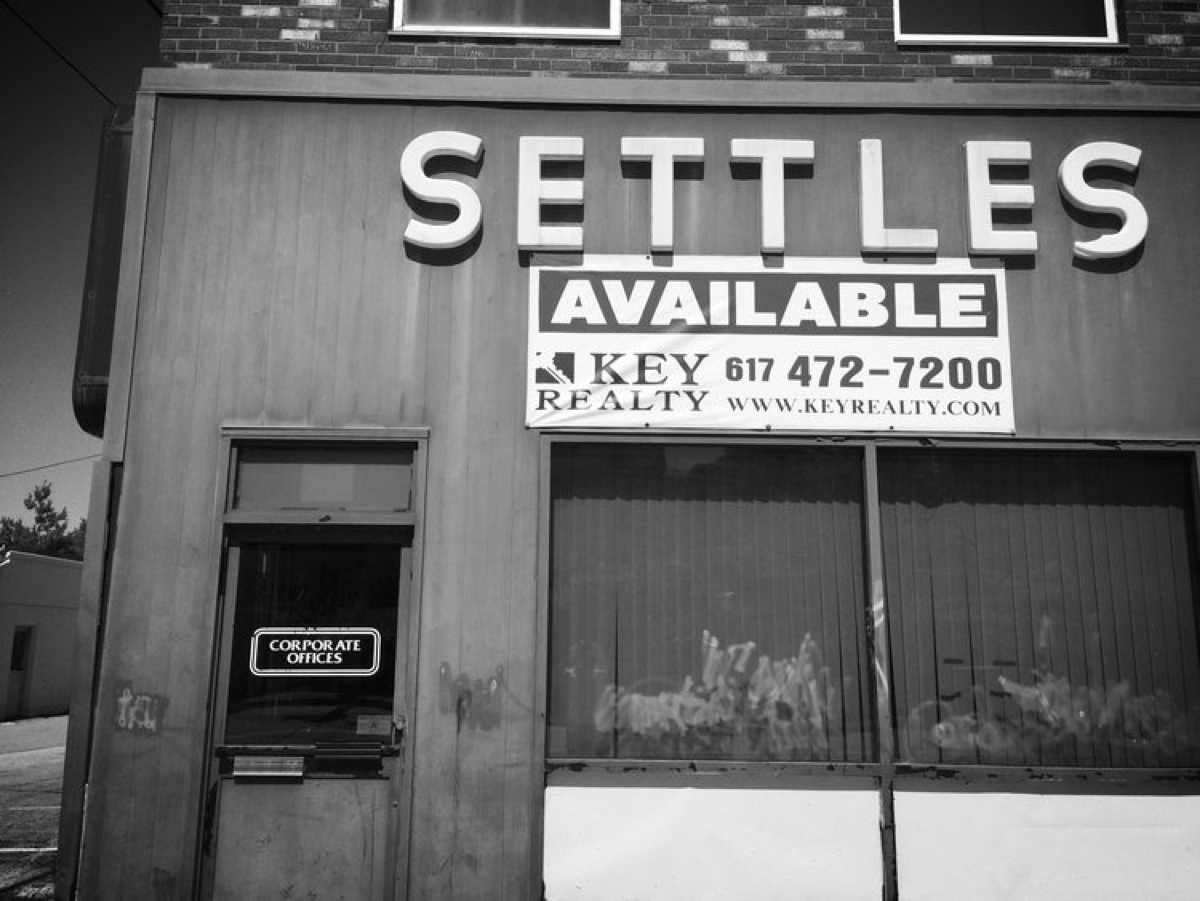Massachusetts Retailers Group Debuts a Spooky Archive of Vacant Storefronts

Photo via DarkStorefrontsMA.com
Nobody wants vacant storefronts in their community. Their bleak exteriors are gloomy, they’re a drag on business for their neighbors, and they’re an embarrassing eyesore for those who want their main streets and downtown areas to be vibrant, worthwhile places to spend time and money.
Now, the Retailers Association of Massachusetts is asking all of us to take a good, long look at the state’s unused business space—framing the vacant storefront problem not as not just the kind of thing that keeps the head of your local economic department up at night, but as a statewide dilemma amid a fast-mutating economy.
Head to the new website, DarkStorefrontsMA.com, RAM says. Observe this photo of the tenantless site of the former Hinge restaurant in Northampton (not in its original orange and red, but in creepy black-and-white). Feast your eyes upon this high-contrast shot of the shuttered Settles Auto Glass in Quincy, its frame ominously askew.
The spooky camera work is meant to set the mood for what RAM president Jon Hurst says in a blog post is a treacherous environment for small retailers. Consumers are flocking to online stores, which can sell products more cheaply and don’t always have to charge sales tax. Health care costs and rent keep going up, while business is going down.
“Consumers, elected officials, community leaders all talk about the importance of supporting small businesses and maintaining our historic, vibrant Main Streets,” he writes. “Yet what are they doing when it comes to really protecting, promoting and preserving local stores, and the delicate local shopping environments in which they operate?”
Hurst urged viewers of the site to pass the images around and use the hashtag #DarkStorefrontsMA.
“Maybe then they will better understand what is happening, and hopefully start to feel some ownership for the disturbing economic and competitive trends. The ultimate objective is for more opinion leaders to decide to work with us on some real support and real solutions.”


